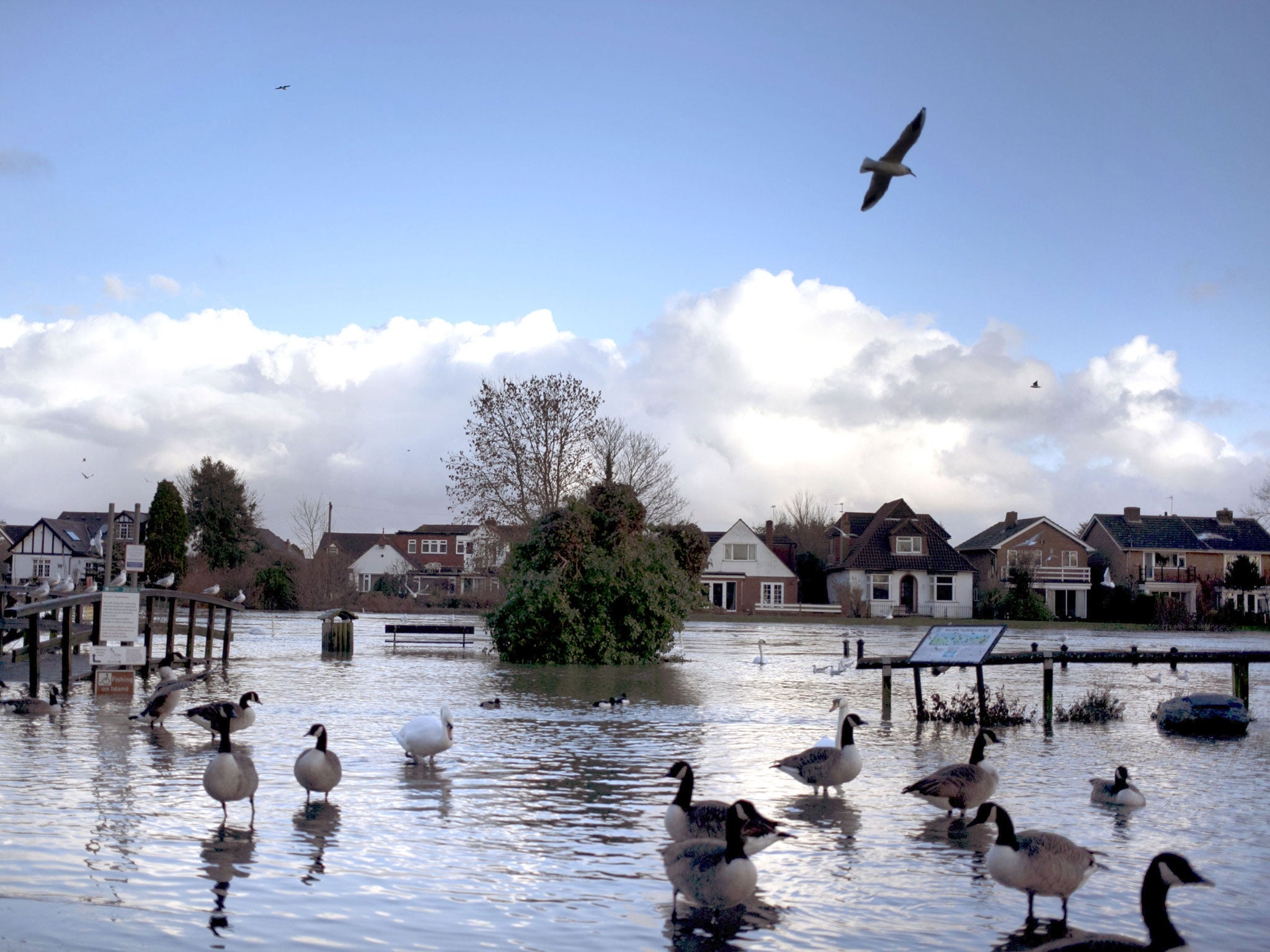Defra concedes flood defence figures were inaccurate: Spending falls from £2.37bn to £2.34bn under the Coalition despite repeated claims to the contrary
Environment Secretary and Prime Minister accused of misleading Parliament and the public

Your support helps us to tell the story
From reproductive rights to climate change to Big Tech, The Independent is on the ground when the story is developing. Whether it's investigating the financials of Elon Musk's pro-Trump PAC or producing our latest documentary, 'The A Word', which shines a light on the American women fighting for reproductive rights, we know how important it is to parse out the facts from the messaging.
At such a critical moment in US history, we need reporters on the ground. Your donation allows us to keep sending journalists to speak to both sides of the story.
The Independent is trusted by Americans across the entire political spectrum. And unlike many other quality news outlets, we choose not to lock Americans out of our reporting and analysis with paywalls. We believe quality journalism should be available to everyone, paid for by those who can afford it.
Your support makes all the difference.Government investment on flood defences has in fact gone down under the Coalition despite repeated claims that it had risen to record levels, ministers were forced to concede.
Dan Rogerson, the Environment minister, said that spending had fallen to £2.34bn in the current four-year period, compared to £2.37bn over the previous four-year period.
“Floods funding is complex, with a number of different income streams including government funding, local levies, and other contributions,” he said. “Further analysis has identified some minor inconsistencies in figures previously provided. I regret this was not presented in a consistent way, something I have now rectified,” he said.
The Government has insisted throughout the recent flooding that it is spending more than any other administration on flood defence.
David Cameron told Commons earlier this month: “In this current four-year period we are spending £2.3bn, compared with £2.1bn in the previous period.”
Owen Paterson, the Environment Secretary, had also previously claimed the coalition was spending “more on flood defences than any previous government”.
The spending disclosure came as the Environment Agency issued 36 flood warnings, mostly in the south-east and south-west of England, meaning that flooding is expected and advising immediate action.
Flooding severely restricted road and rail services for commuters in the south-east today, preventing trains from travelling between London’s Victoria station and Brighton, as well as closing the A23 in Sussex between Bolney and Pease Pottage.
When previously challenged on the accuracy of his flood budget claims at an RSA event by Friends of the Earth member Guy Shrubsole, Mr Paterson had rebuked the campaigner, saying: “Don’t shake your head – that’s a fact. We’ve actually increased the flood budgets quite significantly. I’m afraid you can’t shake your head, I’m giving you the facts.
“If we’re going to have a dialogue, I’m giving you a fact, you look me in the eye, you look at the records, you’ve got to respect that I’m giving you the truth.”
Mr Shrubsole said: “Owen Paterson’s own department has now been forced to admit it has cut flood defence spending, despite claims to the contrary by the beleaguered Environment Secretary. On the basis of these figures, it appears both Mr Paterson and the Prime Minister have misled Parliament and the public.”
Only if ministers include a further £148m in partnership funding can the Government claim it is spending more than Labour on floods.
A spokesman for Mr Paterson said: “The corrections do not change the headline figure, which is that we are currently spending £2.3bn and that, along with the £148m of contributions from partners, is more than was spent in the previous spending review period.”
But the Shadow Environment Secretary, Maria Eagle, said: “The Government should stop including money [in its figures] that they hope to attract from external contributions but have so far failed to secure.”
The admission is the second time this week that the Department for Environment, Food and Rural Affairs (Defra) has revealed significant inaccuracies in its statistics, after revealing on Wednesday that an IT malfunction meant it may have greatly exaggerated the number of cattle herds infected with tuberculosis since September 2011.
This led to an exaggeration of the number of herds infected and raised the “possibility” that the crucial incidence rate – that measures the rate of new infections, which had been cited as a reason for the badger cull to be carried out – may also have been miscalculated.
Defra stressed, however, that no cows had been unnecessarily slaughtered and that it did not undermine the case for its controversial badger cull.
Join our commenting forum
Join thought-provoking conversations, follow other Independent readers and see their replies
Comments